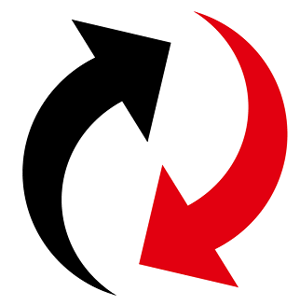 To a general, everyday gambler, a bookie is where you go to place sports bets. That’s the extent of most people’s insight into how bookmakers work. They provide the odds and markets, and you place a wager on your favourite sports and events.
To a general, everyday gambler, a bookie is where you go to place sports bets. That’s the extent of most people’s insight into how bookmakers work. They provide the odds and markets, and you place a wager on your favourite sports and events.
There is a lot more that goes into the operation of a sportsbook, though. One of those processes is when a bookmaker lays off bets. You may have heard of this, or you may not have. Here, we’re going to look into how lay offs work and why a bookie would do this.
This is one of the concepts that can be confusing to begin with but once you reach the end of this article, you’re likely to have a better understanding of it. A lay off is when a sportsbook places a bet at another sportsbook, wholesale bookmaker or an exchange as a way of reducing their liability. That may seem like an odd process to undertake but it happens more often than you may think.
If you want to know how a sportsbook goes about this, then you can find out here. We’ll also explain how this comes about and why a sportsbook needs to balance its books.
Why Does a Sportsbook Decide to Lay Off a Bet?
 Different events and markets receive different amounts of attention from bettors. If you were to look at the number of wagers on the World Cup final, it would likely be quite a high figure. Whereas bets placed on who the next James Bond will be may be low in comparison.
Different events and markets receive different amounts of attention from bettors. If you were to look at the number of wagers on the World Cup final, it would likely be quite a high figure. Whereas bets placed on who the next James Bond will be may be low in comparison.
When there is a lot of action on one specific team or player in a game that is when lay offs occur. Sportsbooks don’t like to pay out huge amounts of money, for obvious reasons. When gamblers wager significant sums and in big numbers on one market, bookies start to worry. If the bet comes through, then they have to take a financial hit because of it.
Ultimately bookmakers don’t want to take risks, which is the polar opposite to the punter. What a bookie does is build in a profit margin into the book as a whole (all the possible outcomes within a market) and if they can attract an equal proportion of bets on all markets they have balanced their books (more on that next) and ensure a profit whatever the outcome. The thing is a balanced book is an ideal and it doesn’t often occur naturally, meaning sometimes bookies are over exposed on certain outcomes. Over-exposure means risk and so to mitigate that bookies will lay off a market they are over-exposed on to attempt to achieve a balanced book.
Let’s use the 2022 World Cup final as an example, contested between France and Argentina. France were the defending champions, having won the tournament in 2018. If a huge number of bettors believed in them to do the same in 2022, then they will wager on them doing so. Such an influx of people betting on France to win could worry a sportsbook. If France did pull off the victory, then the sportsbook would have a lot of money to pay out. In essence, it loses out because France have pulled through with the trophy win. Thus, the bookie needs to do something to counteract that potential loss. It is in this moment that the lay off occurs.
This sees them go to another sportsbook, wholesale bookmaker or an exchange and place a large wager on France to win. In this respect, if the public was right in their prediction, the bookmaker can still ensure a profit. It balances their own book, so to speak.
In the end Argentina won the final so you could say that if the bookies in this example didn’t lay off their bets then they would have made more money. That is true but it is not how bookmaking works. They may have benefited in this scenario but taking risks long term is a good way to go out of business. Balanced books and guaranteed margins are all the matter to bookies, risk is their enemy. Hence why you ‘never see a poor bookie’.
Of course, sportsbooks do what they can internally too to even out markets. If everyone is backing one outcome then the odds shorten discouraging further bets and consequently the odds lengthen on other outcomes encouraging bets. Sportsbooks also put handicaps out on games, giving teams an advantage or disadvantage. That can tend to even out the betting field. This is often sufficient for many markets but for big favourites bookies will still have to look externally to lay off risk.
A Bit More Behind Balancing Books
 Bookmaking is an art form in its own right. The best way of doing it is to make books that give the bookmaker a guaranteed profit. That should be the case regardless of the outcome of the sport(s) in question. Bookmakers will try to secure this profit by building a percentage into their books. We can explain this better with a simple example.
Bookmaking is an art form in its own right. The best way of doing it is to make books that give the bookmaker a guaranteed profit. That should be the case regardless of the outcome of the sport(s) in question. Bookmakers will try to secure this profit by building a percentage into their books. We can explain this better with a simple example.
Let’s say that Rafael Nadal and Andy Murray are competing against one another at Wimbledon. These two players match up evenly. Therefore, the odds of either competitor winning the game should be even-money, or 2.0. In this instance, if you placed a bet of £10 on both Nadal and Murray, you would break even in the end. One of them has to win and so you receive the same money back that you stake. That is an example of true odds, where all possible outcomes add up to 100%. If all players had the same odds and all bettors staked the same amount, a bookie pays out the same amount of money as it has taken.
Yet bookies cannot make any profit by offering true odds, at best they can break even. This is why they build a percentage into a book; to try and make that profit they need. Let’s return to the example tennis match. A bookmaker may offer 10/11 for either player to win. Again, you place £10 bets on each at those odds. You would then get a £19.10 return on your £20 stake when the match is over. The remaining 90p from that total is 4.5% of the initial £20 (2 x £10) stake. This goes as profit to the bookie, which is something they’re always happy about. It’s very little effort for them.
An occasion where two players or teams have equal backing is very rare, though. If £10,000 in bets is staked on a match, that doesn’t mean it is equal. Player A may have had £1,500 staked on then, while £8,500 goes on Player B. This creates the dilemma for the bookie. They can either withstand any potential losses or lay off to try and balance the books out.
The sportsbook could proceed with laying off £7,000 of the £8,500 wagered on Player B. That would leave a much more equal £1,500 on both players at 10/11. Thus, it guarantees a profit of £90 regardless of which tennis player won the match. In comparison to a loss of £7,000, it is logical that taking the easy £90 is a sensible route to take.
Bookmaking is rarely that simple as explained in the example, though. While the basic principles behind it remain the same, different sports operate in different ways. Bookies will always build a percentage into markets for themselves. They will then lay off bets if their liabilities are higher than they want to experience.
Things are never perfect, though, and there are occasions when bookies lose money. This can commonly happen if say the favourite wins the Grand National. In this scenario all bookies are over exposed and so it is hard to lay off risk. Another example would be when Leicester won the league in 2015 and some bookies offered 5000/1 to punters at the start of the season. Here they ended up losing money. It is a rare occurrence, though, and bookies often shout about it when it happens. The fact that most of the time you don’t hear them complaining means they are sitting there happily making money from their balanced books every single day.
How Does a Sportsbook Lay Off Bets?
 There isn’t only a single way to lay off bets for bookmakers. A variety of ways exist for them to proceed with evening out their books. The first is by laying off bets to other bookmakers.
There isn’t only a single way to lay off bets for bookmakers. A variety of ways exist for them to proceed with evening out their books. The first is by laying off bets to other bookmakers.
Bookies sometimes lay off bets on-course. Most of the UK’s big bookies have representatives present at major racecourses. Smaller brands will turn to these big companies to lay off wagers. Of course, such brands as Ladbrokes or Paddy Power are not obliged to take those bets. Thus, bookies will instead send runners out to lay large bets off. They do this by placing smaller bets with a variety of different bookmakers.
Sportsbooks can also use betting exchanges to lay off bets. That’s quite the outcome, considering bookies were against the introduction of exchanges. A backlash from certain companies protested their ability to operate in the way they do. Yet it is clear to see that they have become of use to both punters and bookies.
Betting exchanges took a lot of business away from others. This included high street bookies, online sportsbooks and on-course bookmakers. Their protestations to exchanges went by with little changes made, though. Bookmakers learned how to use these exchanges to their advantage. This sees them use the exchanges to lay off their bets when liabilities are too high. It is usually the case that bookies are trading liabilities with one another this way. They don’t know who is taking the bets, though.
If you are an exchange bettor yourself, then you need to be aware of what you’re betting on. There is the chance that you are taking your bet from an actual bookie. They are trying to lay off their liability through the exchange.
There is also the possibility of laying off bets by offering cash out options. Cash out is a tool that many bettors love, as it does give you the chance to pull out of a bet early. Some people use this to minimise their losses and take at least some of their stake back. It’s something that live bettors utilise when engaging in in-play betting. Of course, cash out wasn’t created for the benefit of the bettor. Far from it. Sportsbooks get to utilise it, too.
Through the cash out tool, bookies get to do two things. First of all, bookmakers can limit their liabilities on any selection. This occurs through them offering punters the opportunity to cash out. If liabilities are high, then you may receive an offer for a more generous cash out. Yet bookies tend to build in a percentage for themselves when offering it. Let’s say you had a £10 double on two horses for even money. You stand to win £40 from this wager. Yet if you had placed a treble, you may choose to cash out after the first two horses have won. In this instance, you’ll find that the cash out option is a little less than £40. It could be £38 for example, meaning that the bookie has taken the remaining 5% for itself.
Finally bookies lay off bets through wholesale bookmakers. You likely won’t have heard of those unless you’ve been in the business. They act in a similar way to financial clearance houses and attempts to match operators who have opposing liabilities, i.e. one want to lay off a market that another wants to back. This commonly happens in the background and as a punter you wouldn’t know they existed.
To Conclude

Bookmakers are often so good at being bookmakers that they will always make a profit. Most gamblers struggle to make a profit for themselves because of this fact. Of course, it’s not impossible to gain a positive return on your bets but you need to know how to wager and what to expect. The clear majority of people lose in the long term. Those that don’t lose are often themselves acting like micro-bookmakers, using back-to-lay strategies that utilise bookies and exchanges. Effectively the only good way to make money from gambling is to be the person providing the opportunity not the person taking the risk.
For punters, it should always be about finding good value bets. Why? Because you are betting on selections which have bigger odds than they should have.
If we go back to our hypothetical tennis match between Nadal and Murray, we can explain further. A bookie may build in a percentage for itself by pricing both competitors at 10/11. Those odds only relate to how the bookie thinks they should be. If you research the players and their history, you may have other opinions. It could come to light that Nadal has a 66% chance of winning in your eyes. This would then relate to a price of 1/2 (1.50). Thus, the 10/11 odds offered by the sportsbook are great value to take. Professional gamblers find value odds like this to try to make consistent returns. Of course, it takes a lot of research and hard work.
It is also key to note that sportsbooks don’t always lay off bets, too. Sometimes, they take the big hits after the public cashes in on a bet. Such was the case when Leicester City won the Premier League in 2016. Bookmakers had to count the cost of their 5,000/1 odds that some players had taken. One player bet £5 on Leicester before the season started and finished up with a £25,000 payout. Sky Bet, as another example, ended up paying a total of £4.6 million to punters after that season win.